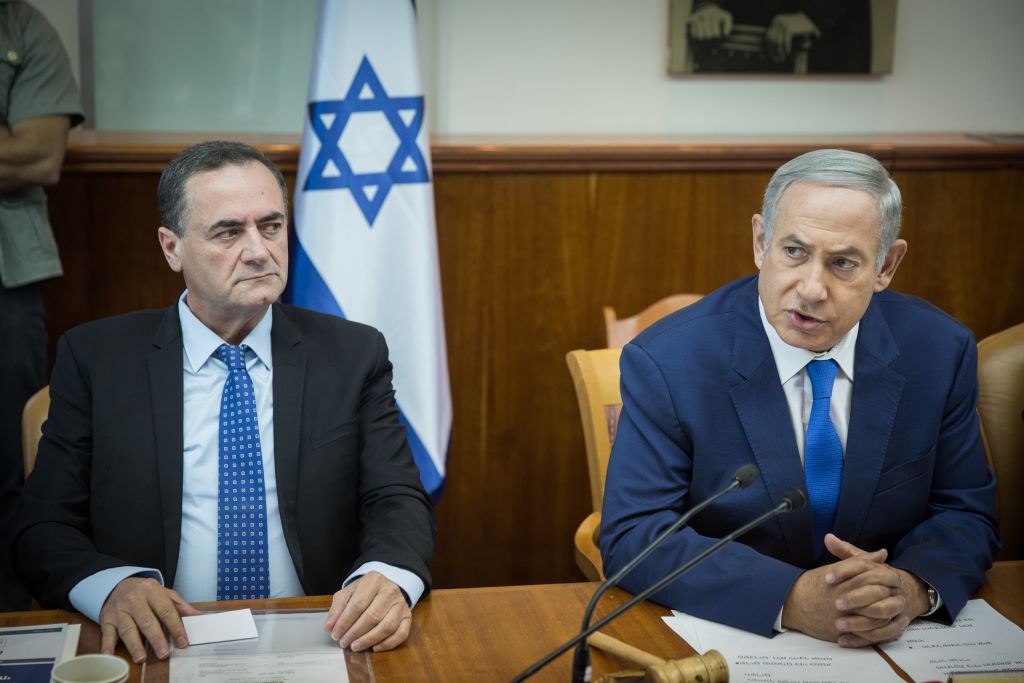Top Israeli Minister Says Timing Is Favorable for US Recognition of Jerusalem as Jewish State’s Capital

Israeli Minister of Intelligence Yisrael Katz has dismissed concerns that US recognition of Jerusalem as the capital of the Jewish state might undercut the expected peace initiative currently being prepared by the White House.
His comments — in a far-reaching interview with The Algemeiner in New York City last Thursday — came a day before the first reports that President Donald Trump planned to unveil the move in a speech this coming Wednesday.
Katz argued the timing of an embassy move was favorable now because Arab states were more preoccupied with the threat posed by Iran than with the Palestinian issue.
“Now it’s the highest chance to do it,” he asserted. “Because everyone that would be potentially against it has other very, very big problems to deal with.”
Katz — a leading Israeli political figure who recently stated his intention to succeed Prime Minister Benjamin Netanyahu — said that the issue of recognition of Jerusalem as Israel’s capital was one of two major objectives for his trip to the US.
The second, he said, was to “support the president’s policy” that “the United States and the world have to change, correct or cancel the nuclear agreement with Iran.”
For now, Israel still sees the value in working to modify the nuclear deal to include new components that it had initially suggested to the Americans, but were rejected by the Obama administration. The threat of new “paralyzing economic sanctions,” Katz said, may still convince Iran to change paths.
“Now the pain (of sanctions) is very familiar to them,” he said. “You know, sometimes when you do something and you release they are afraid to bring it back, it’s more frightening than even before.”
In the event that such new initiatives fail to bring the desired result — the end to Iran’s pursuit of a nuclear weapon — Katz said that support for the military option was unanimous in the Israeli government.
“It’s not only on the table. It’s very clear,” he stated. “There were times that there was an argument inside Israel, you know (between late former Mossad chief Meir) Dagan and Netanyahu and others, but it was only a tactical argument because everyone agreed that we won’t let Iran have nuclear weapons, but the question was if it was the last time to prevent it. But I think there is a very, very broad consensus politically, and a security consensus in Israel that, if it will be the last thing to prevent Iran from nuclear weapons capabilities, Israel will act.”
In the meantime, Katz sees in Trump echoes of the late British statesman Winston Churchill, who, ahead of World War II, sounded the alarm about Nazi Germany when the prime minister at the time, Neville Chamberlain, was still pursuing a policy of appeasement.
Trump, he said, “has an opportunity that Churchill didn’t (have), to change the reality before the disaster comes.” The president’s October speech on Iran policy was “historical” for Israel and Jews “because we always ask ourselves what would happen if Churchill would have come before and canceled the Munich Agreement, maybe the Second World War wouldn’t happen with all its horrible price.”
Read More: Algemeiner